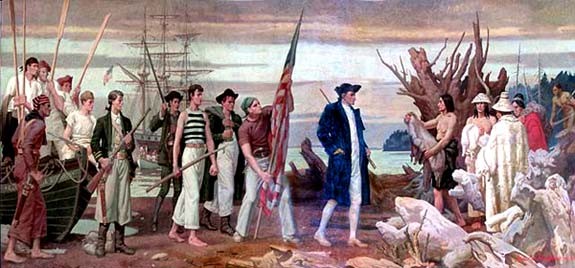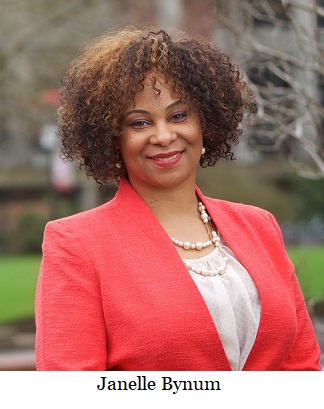History is impacting policy.
Oregon’s Legislature’s BIPOC Caucus has applauded House Speaker Tina Kotek and House Majority Leader Barbara Smith Warner for their commitment to build a more equitable capitol. BIPOC stands for “Black, Indigenous and People of Color.†The members of the Caucus are Rep. Teresa Alonso Leon (D-Woodburn), Rep. Janelle Bynum (D-Happy Valley), Rep. Diego Hernandez (D-Portland), Rep. Akasha Lawrence Spence (D-Portland), Rep. Mark Meek (D-Oregon City), Rep. Andrea Salinas (D-Lake Oswego), Rep. Tawna Sanchez (D-Portland), Sen. Lew Frederick (D-Portland) and Sen. James Manning (D-Eugene).
The Caucus states: “The history of hate and racist violence in Oregon is undeniable.†Referring to Speaker Kotek and Smith-Warner’s statement: "From its very start, Oregon was founded as an anti-Black “white utopia.†Black people were banned from the state in the Oregon Constitution, and the Oregon Territory itself is land stolen from the Native tribes who had made this region home for centuries. Through deliberate policies—from red-lining to forced displacement for “economic developmentâ€â€”Black families were literally robbed of wealth and kept from living in many parts of the state for decades.â€
What exactly are they referring to? Generally, the suppression of Black people is related to slavery and after President Lincoln issued the Emancipation Proclamation on January 1, 1863, it lived on with the Ku Klux Klan.
The Oregon that settlers encountered was post-Civil War, it wasn’t until 1865 when the Confederates surrendered that slaves were emancipated. Oregon was not immune from this division over slavery and passed a law prohibiting slavery in 1843. However, the issues surrounding this was much more complicated. Oregon’s first exclusion law was passed in 1844 by the Provisional Government, the temporary governing political structure set up by the first settlers to reach the region over the Oregon Trail. This first law included a ban on slavery and required slaveowners free their slaves. However, African Americans who remained in Oregon after their freedom was granted, were whiplashed and expelled. In 1849 another exclusion law was passed that allowed black residents already in Oregon to remain, but banned further African American in-migration. This law was in effect until 1854 when it was repealed. In 1857, when a constitution was written in anticipation of statehood, an exclusion clause was included prohibiting new in-migration of African Americans, as well as making illegal their ownership of real estate and entering into contracts or use of courts. Regardless of the passing of the 14th and 15th Amendments, Oregon’s exclusion wasn’t repealed until 1927.

“In spite of the name
Ku Klux Klan most people didn't even know that this group was a racist group. They would participate in events under the guise of increasing their "fraternal organization" numbers. It wasn't until people in the community became involved that they became aware of the "racist" nature of this group. However, the racism of this group wasn't focused on African Americans, rather it was anti-Catholic and anti-Jewish. In fact, former President Harry S Truman was planning to join the KKK until he found out this information. Most ex-members were ashamed they ever were members," according to Toy.
However, the Portland headquarters managed to win seats in the legislature and local and county offices. They were able to pass legislation prohibiting ownership of land by aliens, aimed at Japanese immigrants. Even though the Klans faded away in a few years, it had ingrained a mindset and culture that BIPOC claims has not faded and they remind us: “We do this work on land stolen from indigenous people under a state constitution that, at its founding, specifically banned people of color. We are regularly reminded of this history whenever we sit at our desks on the floors of the Oregon House of Representatives and Oregon Senate, where murals of white settlers and the names of mostly white men hang over our heads.â€
Since BIPOC wasn’t a notable part of Oregon’s history, they still benefit as government evolves. We can’t change history, but we can learn from it and BIPOC can be their pioneers going forward.
--Donna Bleiler| Post Date: 2021-01-05 15:26:31 | Last Update: 2021-01-05 20:12:41 |







 “In spite of the name Ku Klux Klan most people didn't even know that this group was a racist group. They would participate in events under the guise of increasing their "fraternal organization" numbers. It wasn't until people in the community became involved that they became aware of the "racist" nature of this group. However, the racism of this group wasn't focused on African Americans, rather it was anti-Catholic and anti-Jewish. In fact, former President Harry S Truman was planning to join the KKK until he found out this information. Most ex-members were ashamed they ever were members," according to Toy.
“In spite of the name Ku Klux Klan most people didn't even know that this group was a racist group. They would participate in events under the guise of increasing their "fraternal organization" numbers. It wasn't until people in the community became involved that they became aware of the "racist" nature of this group. However, the racism of this group wasn't focused on African Americans, rather it was anti-Catholic and anti-Jewish. In fact, former President Harry S Truman was planning to join the KKK until he found out this information. Most ex-members were ashamed they ever were members," according to Toy.